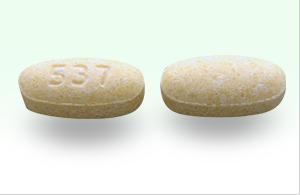Potassium citrate
Generic name: potassium citrate [ poe-TASS-see-um-SIT-rate ]
Brand names: Urocit-K, Twin-K
Dosage form: oral tablet, extended release (10 mEq; 15 mEq; 5 mEq)
Drug class: Urinary pH modifiers
What is potassium citrate?
Potassium citrate is a mineral that is used to treat kidney stones.
Potassium citrate may also be used for purposes not listed in this medication guide.
Potassium citrate side effects
Get emergency medical help if you have signs of an allergic reaction: hives; difficult breathing; swelling of your face, lips, tongue, or throat.
Potassium citrate may cause serious side effects. Call your doctor at once if you have:
-
severe vomiting or stomach pain;
-
high blood potassium--nausea, weakness, tingly feeling, chest pain, irregular heartbeats, loss of movement; or
-
signs of stomach bleeding--bloody or tarry stools, coughing up blood or vomit that looks like coffee grounds.
Common side effects of potassium citrate may include:
-
upset stomach, nausea, vomiting; or
-
diarrhea.
This is not a complete list of side effects and others may occur. Call your doctor for medical advice about side effects. You may report side effects to FDA at 1-800-FDA-1088.
Related/similar drugs
Warnings
Follow all directions on your medicine label and package. Tell each of your healthcare providers about all your medical conditions, allergies, and all medicines you use.
Before taking this medicine
You should not use potassium citrate if you have:
-
high levels of potassium in your blood (hyperkalemia);
-
a bladder or kidney infection;
-
untreated or uncontrolled diabetes;
-
an adrenal gland disorder;
-
a blockage in your intestines;
-
problems with your esophagus, stomach, or intestines that affect swallowing or digestion;
-
a peptic ulcer in your stomach;
-
a large tissue injury (such as a severe burn);
-
if you are dehydrated or malnourished; or
-
if you take a "potassium-sparing" diuretic (amiloride, eplerenone, spironolactone, or triamterene).
Tell your doctor if you have ever had:
-
kidney problems other than kidney stones;
-
too much acid in your body (acidosis);
-
heart problems; or
-
chronic diarrhea (such as ulcerative colitis, Crohn's disease).
It is not known whether potassium citrate will harm an unborn baby. Tell your doctor if you are pregnant or plan to become pregnant.
It may not be safe to breastfeed while using this medicine. Ask your doctor about any risk.
Potassium citrate is not approved for use by anyone younger than 18 years old.
How should I take potassium citrate?
Follow all directions on your prescription label and read all medication guides or instruction sheets. Your doctor may occasionally change your dose. Use the medicine exactly as directed.
Take with a meal or bedtime snack, or within 30 minutes after a meal.
Swallow the tablet whole and do not crush, chew, break, or suck on it.
The tablet may irritate your mouth or throat. Tell your doctor if it feels like the tablet gets stuck in your throat when you swallow it.
You may need to follow a special diet while using potassium citrate. Follow all instructions of your doctor or dietitian. Learn about the foods to eat or avoid to help control your condition.
You will need frequent urine and blood tests. Your heart function may need to be checked using an electrocardiograph or ECG (sometimes called an EKG).
Limit your salt intake and drink plenty of fluids while taking potassium citrate.
Store at room temperature away from moisture and heat. Keep the bottle tightly closed when not in use.
What happens if I miss a dose?
Take the medicine as soon as you can, but skip the missed dose if it is almost time for your next dose. Do not take two doses at one time.
What happens if I overdose?
Seek emergency medical attention or call the Poison Help line at 1-800-222-1222.
What should I avoid while taking potassium citrate?
Do not use potassium supplements or salt substitutes, unless your doctor has told you to.
Avoid strenuous exercise if you are not in proper condition for it.
What other drugs will affect potassium citrate?
Tell your doctor about all your other medicines, especially:
-
digoxin, digitalis;
-
bronchodilator asthma medication;
-
cold or allergy medicine (Benadryl and others);
-
a diuretic or "water pill";
-
medicine to treat depression, anxiety, mood disorders, or mental illness;
-
medicine to treat overactive bladder;
-
medicine to treat Parkinson's disease; or
-
medicine to treat stomach problems, motion sickness, or irritable bowel syndrome.
This list is not complete. Other drugs may affect potassium citrate, including prescription and over-the-counter medicines, vitamins, and herbal products. Not all possible drug interactions are listed here.
Frequently asked questions
More about potassium citrate
- Check interactions
- Compare alternatives
- Pricing & coupons
- Reviews (8)
- Drug images
- Side effects
- Dosage information
- During pregnancy
- Drug class: urinary pH modifiers
- En español
Patient resources
Other brands
Professional resources
Other brands
Related treatment guides
Further information
Remember, keep this and all other medicines out of the reach of children, never share your medicines with others, and use this medication only for the indication prescribed.
Always consult your healthcare provider to ensure the information displayed on this page applies to your personal circumstances.
Copyright 1996-2025 Cerner Multum, Inc. Version: 3.01.

